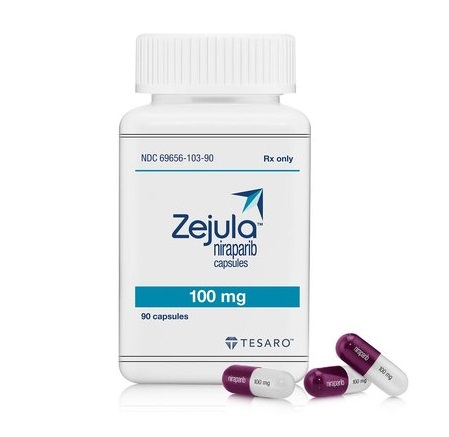Roche bladder cancer drug Tecentriq tries Zejula combination therapy March 01, 2018 Source: Sina Pharmaceutical In the field of immuno-oncology research, if it is not completely successful at first, pharmaceutical companies often try to use immune-enhanced cancer drugs or other treatments. Roche is now adding another combination test to the detection point inhibitor Tecentriq (atezolizumab). Tesaro announced on Monday that it will be used in combination with Tecentriq in patients with metastatic bladder cancer to test the efficacy of its PARP inhibitor Zejula. According to the Tesaro statement, Roche's Genentech initially received FDA approval for Tecentriq as a second-line treatment for bladder cancer in 2016, and will begin a combined trial in the middle of the year. In 2017, Roche announced that its PD-L1 antibody Tecentriq failed clinically in a phase III bladder cancer called IMvigor211. This phase III clinical trial compared the effects of Tecentriq and standard chemotherapy with chemotherapy as a second-line therapy on the overall survival of patients with advanced bladder cancer. As a result, there was no significant difference between the two groups. The new type of anticancer drug, Tecentriq, is the first FDA-approved PD-L1 inhibitor for patients with bladder cancer that does not qualify for cisplatin chemotherapy. But then the drug failed to show that it prolonged the life of the patient's Phase 3 clinical trial, raising questions about the true value of Tecentriq in bladder cancer and the true value of other PD-1 / L1 inhibitors. Although the test results were disappointing, Roche did not lose the FDA's listing approval, but it did cause the company to lose some market share. Barclays analysts believe that Tecentriq's use in bladder cancer is continuing to decline, and Roche's market share has gradually tilted to Merck's Keytruda, which approved first- and second-line treatment for bladder cancer last May. A second-line trial showed that Keytruda extended the overall survival of patients by 10.3 months, while the survival of chemotherapy patients was only 7.4 months. This market position was further promoted. But Keytruda is not the only challenge that Tecentriq faces in the bladder cancer market. AstraZeneca was approved by the US FDA for bladder cancer treatment in its checkpoint inhibitor Imfinzi, and Bavencio of Merck and Pfizer were also approved for marketing, and they were all launched at the same time last spring. Dr. Mary Lynne Hedley, President and Chief Operating Officer of Tesaro, said in a statement, "The real idea behind the combination of drugs is to improve the ability of the immune system to recognize and attack cancer beyond the level of a single drug treatment. The goal of treatment is to extend Survival period and expanded population of patients responding to immune tumor therapy. Pairing Tecentriq with Tesaro's PARP inhibitors "provides a potential option for patients with advanced bladder cancer, although anti-PD(L)-1 drugs have recently achieved significant Progress, but the immune evasion mechanism remains a clinically relevant unmet need. †In other words, the competition in the monotherapy market will be very intense compared to the bladder cancer combination competition. For example, Keytruda is being tested in combination with chemotherapy as a first-line bladder cancer treatment, while Imfinzi is testing with a block checkpoint CTLA-4 drug. Many companies are testing the PARP-PD-1/L1 theory in other oncology fields. Last summer, Merck and AstraZeneca signed a $8.5 billion partnership, with some of the collaboration focused on testing the efficacy of the AstraZeneca PARP inhibitor Lynparza and the two companies' checkpoint inhibitor combinations. Clovis Oncology teamed up with BMS to pair the PARP inhibitor Rubraca with the PD-1 blocker Opdivo and is currently conducting trials for prostate, breast and ovarian cancer. The alliance between Tesaro and Roche in bladder cancer may be of great help in achieving the desired efficacy of Zejula. The drug is approved for the treatment of ovarian cancer, fallopian tube cancer or primary peritoneal cancer, with sales reaching $65.3 million in the first nine months of 2017. Zejula's continued growth is certain, and analysts expect sales of the product to reach $1.9 billion per year by 2022. (Sina Pharmaceutical Compilation / Fan Dongdong) Article reference source: In wake of Tecentriq bladder cancer bust and lost market share, Roche tries Tesaro combo External Aluminum Foil Reflective Series External Aluminum Foil Reflective Series,Sunshade Net with Grommets,Wind Resistant Outdoor Shade Net,Insulation Sun Shade Curtain Changzhou Green Nets Co.,Ltd. , https://www.czglnets.com
Roche bladder cancer drug Tecentriq tries Zejula combination therapy